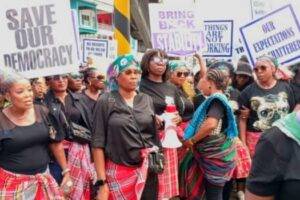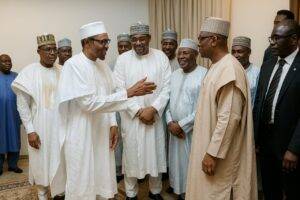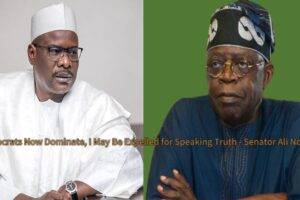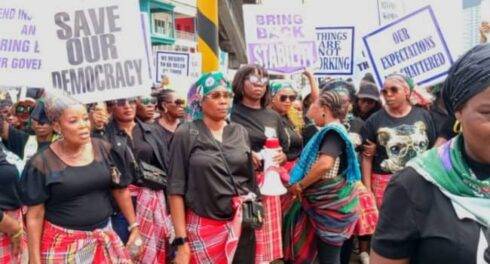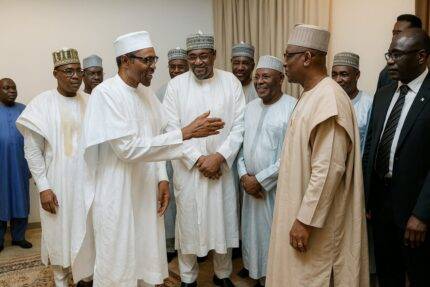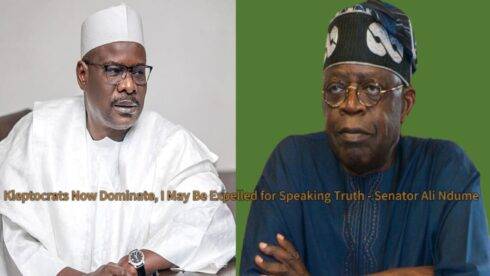President Bola Ahmed Tinubu’s assertion that he is the “sole cabal” of his administration has raised alarms about the centralization of power. While he frames this as a strategy for efficiency and accountability, critics argue it signals the rise of a new autocratic presidency. By sidelining key institutions and concentrating authority within the presidency, Tinubu risks turning Nigeria’s democracy into a one-man rule.
Rather than fostering a government of collective decision-making, Bola Ahmed Tinubu’s leadership style suggests an era where ministers, lawmakers, and even party stalwarts serve as mere figureheads. If this trend continues, Nigeria’s governance structure could regress into an era where dissent is suppressed, and the president’s word becomes final, leaving little room for checks and balances.
Economic Collapse: Bola Ahmed Tinubu’s Reforms or Mass Suffering?
Tinubu’s economic policies, particularly the hasty removal of fuel subsidies, have pushed millions of Nigerians into financial hardship. While the government insists these decisions are necessary for long-term stability, the immediate effects have been devastating—hyperinflation, currency depreciation, and skyrocketing cost of living. The middle and lower classes have been hit the hardest, with food, transportation, and basic utilities now out of reach for many.
Instead of cushioning the blow with robust welfare programs, Bola Ahmed Tinubu’s administration has relied on vague promises of economic revival. The suffering is real, and patience is running thin. If the president fails to implement urgent corrective measures, his economic policies may be remembered not as reforms, but as reckless decisions that plunged Nigeria deeper into crisis.
Security Meltdown: Is Tinubu Losing the Battle?
Despite inheriting a fragile security situation, Bola Ahmed Tinubu’s administration has failed to curb Nigeria’s escalating violence. Bandits, terrorists, and kidnappers continue to operate with impunity, terrorizing communities and undermining national stability. Tinubu’s repeated pledges to “crush insecurity” have yielded little progress, leaving many Nigerians disillusioned and fearful.
The government’s approach remains reactive, recycling the same failed military strategies without innovative solutions. If security remains unchecked, the president’s tough talk will ring hollow, and his administration will be remembered for broken promises rather than decisive action. Without immediate reform in Nigeria’s security architecture, Tinubu’s leadership may be defined by bloodshed and lawlessness.
Cronyism and Corruption: The Rebirth of Old Politics?
Bola Ahmed Tinubu’s appointments have shattered hopes for a government of fresh ideas. Instead of prioritizing technocrats and reformers, he has filled key positions with recycled political loyalists, raising concerns about nepotism and favoritism. His government appears to be reinforcing the same patronage system that has long stifled Nigeria’s progress.
This trend is a betrayal of the promise of competence-based governance. If Tinubu continues rewarding loyalty over merit, his administration risks becoming an elite club for the politically connected rather than a government for the people. Nigerians expected change, but they are seeing a government that looks eerily familiar to past regimes plagued by corruption and inefficiency.
Clampdown on Opposition: A Return to Dictatorship?
Tinubu’s administration is increasingly showing intolerance for dissent. Opposition figures, activists, and journalists who criticize the government face intimidation, legal harassment, and media censorship. While democracy thrives on debate and accountability, Tinubu’s government appears intent on silencing opposing voices.
This crackdown raises fears that Nigeria is sliding toward authoritarianism. If the president truly values democracy, he must allow room for criticism and alternative views. However, if this trend continues, Tinubu’s tenure may be marked not by reform, but by a dangerous assault on free speech and political opposition.
Bola Ahmed Tinubu’s Legacy: Reformist or Ruthless Ruler?
As Tinubu navigates the complexities of leadership, his administration stands at a crossroads. Will he be remembered as the leader who restored order, or the president who ruled with an iron fist? His policies, governance style, and treatment of opposition will ultimately shape his legacy.
If Tinubu fails to course-correct, he risks going down in history as a leader who centralized power, suppressed dissent, and imposed economic hardship on Nigerians. However, with bold reforms and genuine democratic governance, he still has a chance to prove his critics wrong. The choice is his to make—but time is running out.
Table of Contents
Discover more from OGM News NG
Subscribe to get the latest posts sent to your email.

